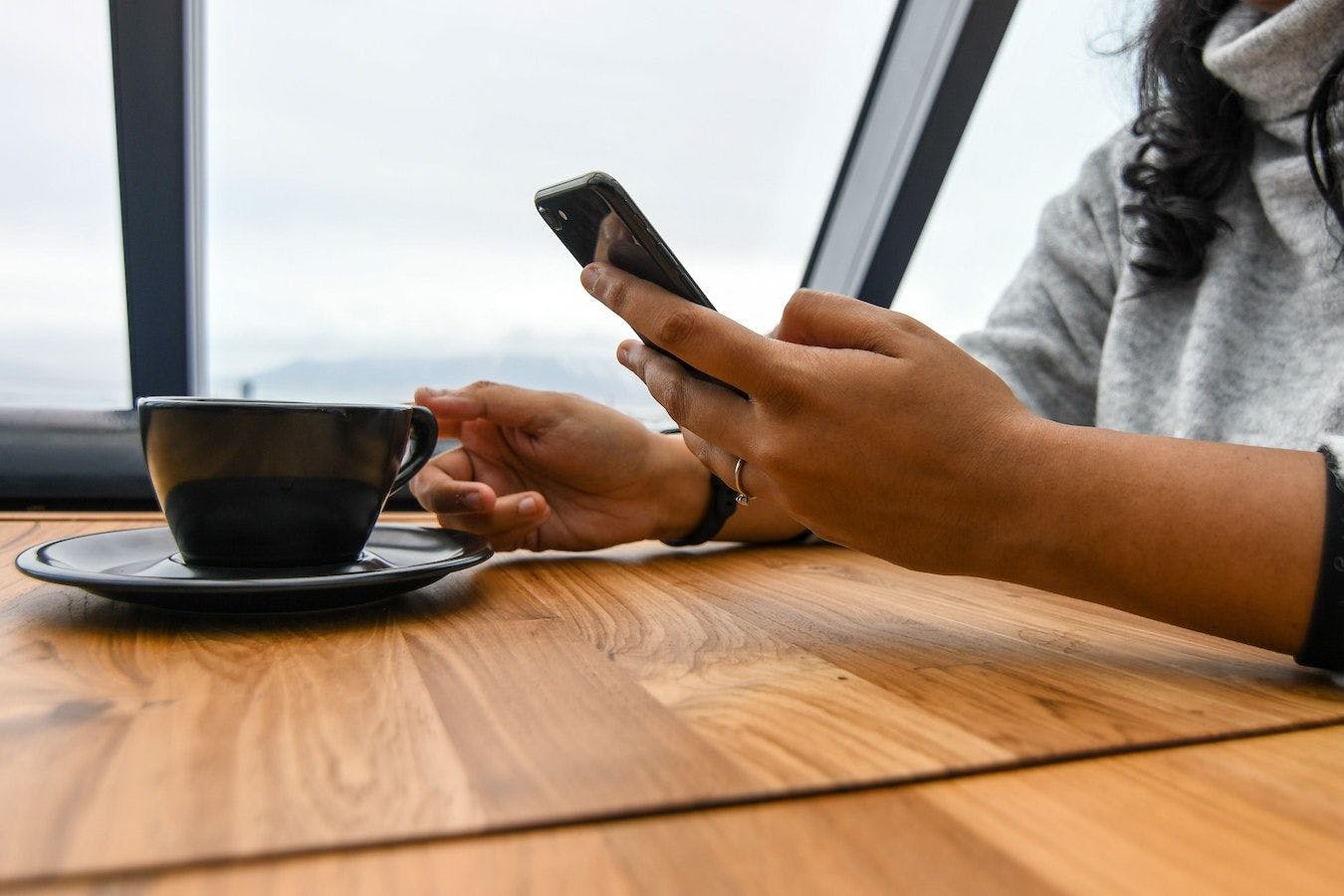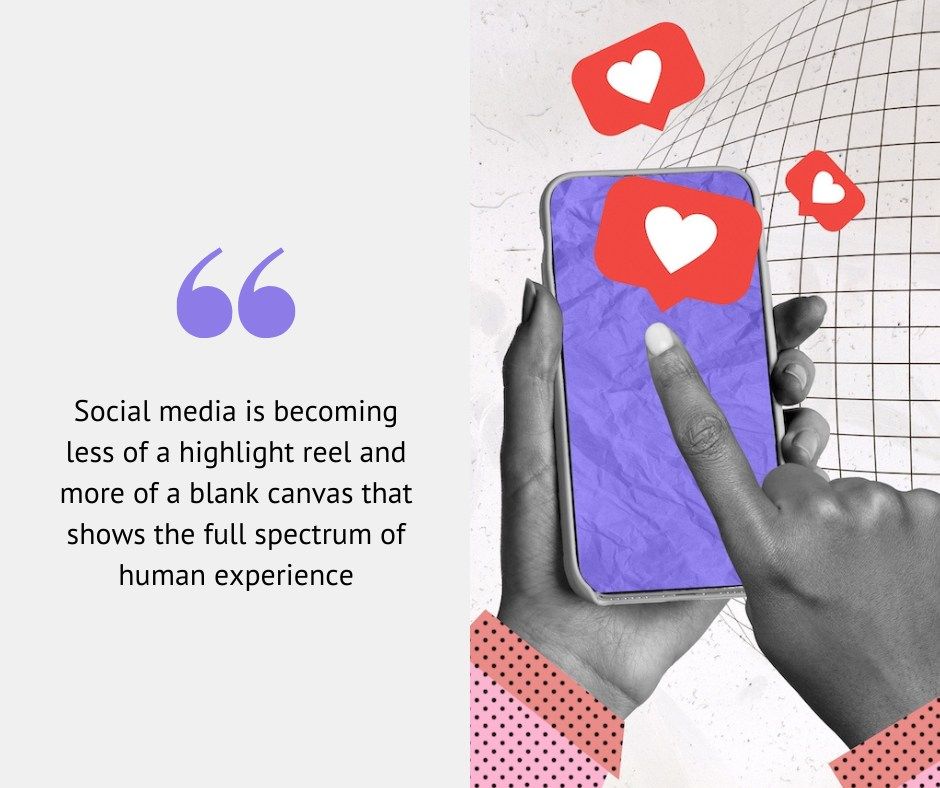Is the age of social media honesty helping or hindering our mental health?
updated on Jul 9, 2023

Social media is becoming a more candid place for emotional expression. We look into how this could benefit or hinder our mental health
Log on to Instagram – or most other social media platforms for that matter – and you’ll likely find a sea of carefully curated images and flawlessly filtered selfies, and you may feel your life is lacking as a result.
With picture-perfect relationships, high-flying careers, and thriving social lives constantly presented as the norm, it only takes a quick scroll for us to suddenly feel less than. But could all of that be slowly changing? Are posts that show the realistic sides of life becoming more common?
If the recent posts of certain celebrities are anything to go by, the answer could well be yes. Famous faces like Bella Hadid, Adele, and Lizzo have taken to their feeds in recent times to discuss their bad days, open up about mental health concerns, and even share crying selfies.
Discussing why she often documents her low points, Bella Hadid recently explained to the Wall Street Journal that she wanted to shatter the illusion of her perfect lifestyle and help her followers, who could be facing similar challenges themselves, feel less alone.
Snapping a crying selfie in a low moment helped her to manage “excruciating and debilitating” feelings of anxiety, and provided an easy way for her to reach out to others and feel less lonely, she shared.
It’s not just celebrities either. On TikTok, crying videos have become a more common occurrence, while others have joined the ‘depression rooms’ hashtag, sharing videos of themselves tidying up after a depressive episode.
In a world of unrelenting perfection, real, raw depictions of emotion are an unusual sight to see. So, are these posts paving the way for a more honest social media landscape that’s less harmful to our mental health, one that could help us untangle complex feelings of comparison and allow us to connect with others who are going through similar, too?
Curing comparisonitis?
“Even though we know, rationally, that much of what we see on social media is curated and not a realistic representation of the ups and downs of someone’s life, scrolling through it can easily cause us to compare ourselves to others, and conclude that we’re lacking or missing out in some way,” Navit Schechter, CBT therapist and founder of Conscious & Calm, explains.
“When we see other people being open and honest, however, it paves the way for us to be able to do the same,” Navit adds. It’s a feeling of ‘If they can, I can.’

What’s more, social media honesty, whether it’s Adele breaking down on camera or your neighbour sharing that they’ve had a bad day, provides a form of perspective. It reminds us that no matter how perfect someone’s life seems on the outside, we all have our ups and downs. Behind all the glossy images is reality, in its often messy and complicated glory.
Not only can this help us shift those uneasy feelings of low self-worth and comparison, it may also allow us to feel more connected to, and supported by, the people around us.
“When celebrities and influencers are open about their struggles, it has a massive impact on their audience, helping them to feel less alone and isolated,” Navit explains. “As the people viewing this kind of content, we feel more connected to others as it promotes a sense of shared experience.”
Opening up
But before you rush onto your Instagram account and type out a candid caption, it’s important to be aware of how this trend could be detrimental to your mental health as well.
Navit warns that, while sharing your struggles can be liberating and empowering, it can also lead to feelings of vulnerability and exposure. Not everyone will be supportive, and once those posts are out there, they are no longer under your control.
“To mitigate these risks, make a considered decision about what you want to share before posting, and ask yourself whether there are any times that you wouldn’t want this information shared, or people who you wouldn’t want to share it with, either now or in the future,” she advises.
Navit says that, bottom line, if you don’t feel comfortable sharing online, you don’t have to. And it may be more helpful to seek support elsewhere, be it chatting things through with a friend, writing in a journal, or reaching out to a mental health professional.
If you think sharing your low moments online could be beneficial, there are ways you can embrace this trend without going overboard, too. It could be sharing a relatable meme that represents how you’re feeling, finding supportive online mental health communities, or DMing a simple ‘me too’ to a friend when you see they’ve posted about having a tough day.
All of these small acts could carve out a space that enables others to open up, and may help you feel less alone in the process.
Losing the stigma
When you’re feeling low, expressing your most real and honest emotions can be overwhelmingly difficult. It’s not always easy to pick up the phone and honestly explain how you’re feeling in that moment.
For some, snapping a crying selfie or typing out an honest caption is an easier way to express these complicated emotions, and it’s becoming more acceptable to do so. With recognisable faces showing us that it’s OK not to be OK, slowly but surely conversations around mental health are becoming less taboo.
“When we see people in the spotlight speaking out about their difficulties and struggles around mental health, it spreads the message that mental health is something that we all need to tend to, and that someone can experience mental health struggles no matter how great their life looks from the outside,” Navit says.
Social media is becoming less of a highlight reel and more of a blank canvas that shows the full spectrum of human experience. Like an artist choosing what colours to use, you get to decide what that canvas looks like.

